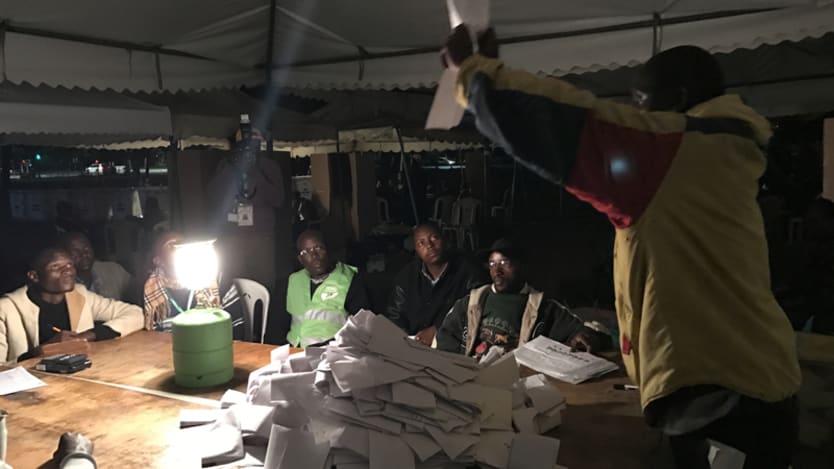
Observers point to a free and fair election in Kenya — despite plenty of fake news — the U.K. government thinks twice about three controversial funds, and Mark Green gets to work at USAID. This week in development.
Election observers in Kenya say the country’s election was free and fair, as votes continue to be counted in the hotly contested race. Kenyans went to the polls Tuesday for a general election that gave rise to fears that violence might follow them, as it did after the 2007 election. Kenya's electoral commission is still counting votes, but incumbent President Uhuru Kenyatta — who billed himself as the “development” president — appears to have a substantial lead. In the leadup to the election, Devex East Africa Correspondent Sara Jerving reported on the challenge election monitors have faced in the “uncharted waters” of measuring how social media and fake news have influenced this year’s political contest. While misinformation is not new to Kenya’s election landscape, it has now gone online and appears in more sophisticated forms. “One video, shared on Twitter, starts with a generic clip of a CNN International broadcast journalist and then is edited to cut over to a voiceover announcing news that President Uhuru Kenyatta is leading in an online opinion poll,” Jerving reported. Fearing a repeat of the 2007 post-election violence that claimed over 1,000 lives, NGOs laid a groundwork of relationships with local civil society organizations in the leadup to Tuesday’s contest, Jerving found. Mercy Corps, for example, “spent the months leading up to the election combing the ground for influencers in five counties in Kenya that have been identified as potential hotspots,” according to her report.
The U.K. government suspended a six-month-old cross-government Empowerment Fund and placed two other funds — the Conflict, Stability and Security Fund and the Prosperity Fund — under review. The three funds are considered flagship funding channels for the new cross-government aid strategy, which aims to deliver 30 percent of U.K. aid through government departments other than the Department for International Development. The move follows bruising criticism of the funds from the National Audit Office, which lamented a lack of transparency and lack of a clear management for the funds, which together allocate nearly 2 billion pounds in official development assistance. The suspension and review cast doubt on the government's unique, but controversial, attempt to deliver more aid across government, combine ODA and non-ODA, and better coordinate U.K. aid efforts on the ground.
Mark Green, the new U.S. Agency for International Development administrator, officially started work on Monday. After he was sworn in, Green spoke to USAID officials in a packed lobby of the agency’s Washington, D.C., headquarters. “I can't tell you what an honor — and relief — it is to finally be here with you,” Green told his new colleagues. President Donald Trump’s pick to lead USAID arrived at the agency in less time than President Barack Obama’s aid chief, but Green still spent months battling through the vetting, nomination and confirmation process. On his first day, he gave USAID staff a preview of what they can expect from him. Green promised to challenge U.S. aid officials and told them he wants to hear real opinions. “I don’t want the ‘company line,’” he said. Green also described his view of what foreign assistance should strive to achieve. “I believe the purpose of foreign assistance should be ending its need to exist,” he said. “Each of our programs should look forward to the day when we can end it. And around the world we should measure our work by how far each investment moves us closer to that day.”
In other U.S. foreign affairs staffing news, two top aides to U.S. Ambassador to the United Nations Nikki Haley have resigned, both of them citing family concerns. Haley’s Chief of Staff Steven Groves, a product of the conservative Heritage Foundation, and her Communications Director Jonathan Wachtel, a former Fox News producer, are both leaving. Their departures come at a critical time for U.S. engagement at the U.N., as Trump seeks to manage a diplomatic crisis with North Korea.
Join the Devex community and access more in-depth analysis, breaking news and business advice — and a host of other services — on international development, humanitarian aid and global health.








